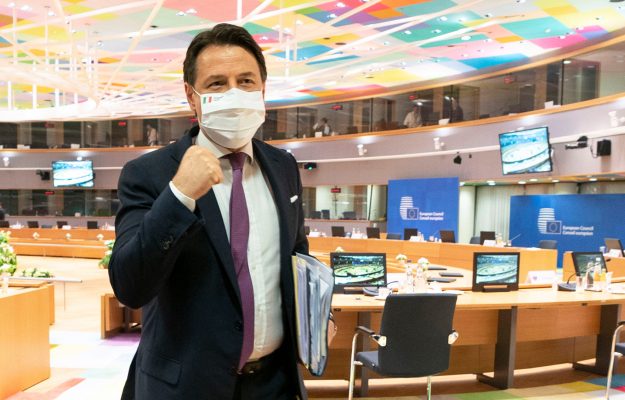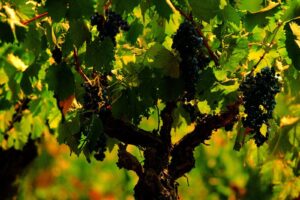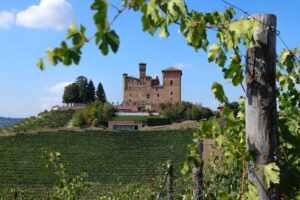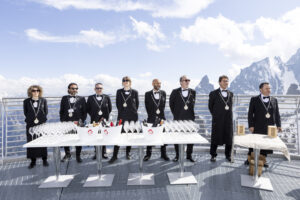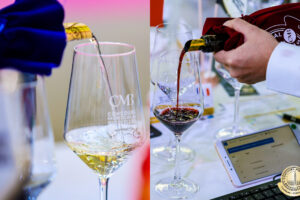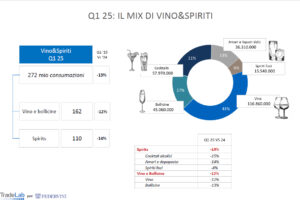After months of speculation and days of negotiations, the agreement on the Recovery Fund in Europe was found, with Italy taking home 209 billion euros (28% of total resources). And the food industry in the Belpaese, one of the sectors most affected by the Coronavirus pandemic, which needs help and significant interventions, was also holding its breath. With the main trade associations that, in unison, invite the Government to act, as quickly as possible, allocating part of the aid coming from Europe to the players in the agri-food sector, financing technological development, infrastructure, but also self-supply: during the lockdown, the problem of food self-sufficiency of Italy and the EU Member States was in the spotlight, but also that of the difficulties in terms of mobility of goods and services, highlighting the need to make the agricultural and food supply chains more resilient, especially at a time of political and commercial instability like the one we are facing.
“What is important now is that the government does not temporize,” commented Dino Scanavino, president of Cia-Agricoltori Italiani, “but builds a concrete project for the relaunch of the country from the outset, allocating the considerable Community resources to measures and investments in strategic sectors, such as agriculture and the agri-food industry.
Agriculture has always been the symbol of Europe, the first sector to have a common policy for all. Now - notes Scanavino - the resources allocated to the new CAP, while increasing compared to the first Commission proposals, will be reduced by 10%. For this reason, it is essential that the decrease in aid compared to the current programming can be counterbalanced and supplemented by other EU policies and funds, given the primary role of agriculture to ensure food supply and to achieve the goal of a greener, sustainable and digital Europe”.
Italy, in short, will have to define a national plan to implement the reform of the CAP, which is truly strategic for the growth of the sector and which, valuing the work of farmers and the environmental, social and economic contribution they make in rural areas - emphasizes President Cia/Agricoltori Italiani - provides for measures aimed at the market and a path towards green transition capable of developing innovation and competitiveness. “Even more important - concludes Scanavino - is to ensure that the funds of the “Next Generation Eu” for agriculture, namely 7.5 billion allocated to rural development, can be used already with the rules in force and not from 2022 with the reform of the CAP as indicated by the Commission, to allow companies to stay in the market and invest in the future, confirming itself as one of the driving forces of the European economic system.
A future that, for Coldiretti, inevitably passes through the reorganization of the entire supply chain, after the pandemic led to the disruption of supply chains, difficulties experienced in terms of mobility of goods and services. And all this “makes it strategic to invest in the sector - said Ettore Prandini, President Coldiretti - increasing the resilience of the national agri-food chains, also with infrastructural investments to boost the competitiveness of the country with the resources coming from Europe after the agreement has been reached.
The global alarm caused by the Coronavirus - Prandini pointed out - has brought out a greater awareness of the strategic value of the food supply chain and the necessary guarantees of quality and safety, but it is, however, revealing all the fragilities on which it is necessary to intervene with a national plan, to defend food sovereignty and not depend on other countries for supplies at a time of international tension on trade”.
The average degree of self-supply of agricultural products in Italy, according to the Coldiretti analysis, has dropped to 75%, with Belpaese which depends on foreign countries for almost all agricultural products, from meat to milk to cereals, and except only for wine, fruit and poultry meat. Therefore, Coldiretti points out, a commitment to innovation with precision agriculture 4.0 is needed in order to involve 10% of the cultivated area in Italy, with the development of applications on several fronts: from production and quality optimization to the reduction of company costs, from minimizing environmental impacts with seeds, fertilizers, pesticides to cutting water use and fuel consumption. We then need to make up for structural delays, Coldiretti points out, and unlock all the infrastructure that would improve connections between the South and North of the country, but also with the rest of the world by sea and high-speed rail, with a network of hubs consisting of airports, trains and cargo. “A lack that every year - Prandini said - represents a damage for our country in terms of fewer export opportunities and a heavier “logistic bill” for the handling of goods. But unsustainable delays - concluded President Coldiretti - also concern the telematic infrastructure. Fiber and all related services must cease to be a slogan and be brought to rural areas within a few months, and made available to farmers to take advantage of all the 4.0 agricultural technology we are going to offer them”.
Copyright © 2000/2025
Contatti: info@winenews.it
Seguici anche su Twitter: @WineNewsIt
Seguici anche su Facebook: @winenewsit
Questo articolo è tratto dall'archivio di WineNews - Tutti i diritti riservati - Copyright © 2000/2025










